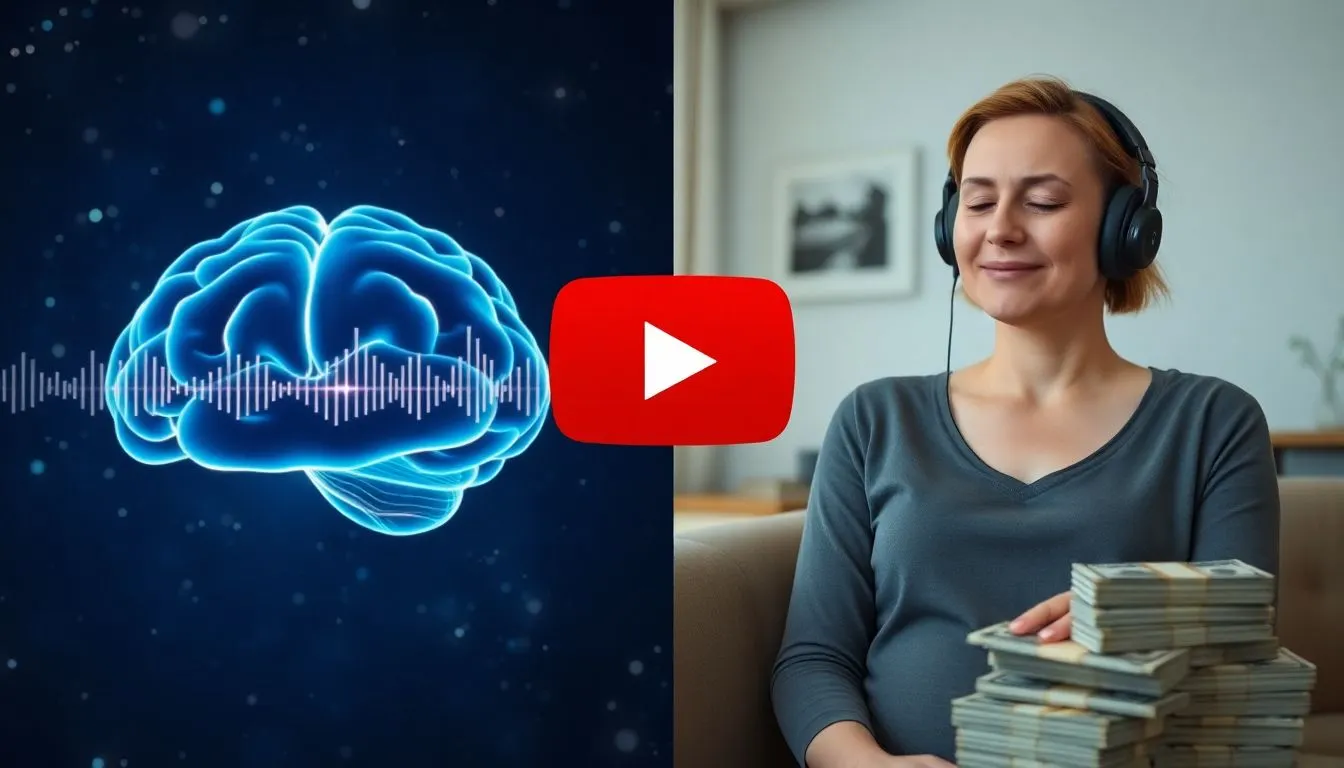Revealed: Dr. James Rivers' groundbreaking Brain Song
Leading NASA Researcher: "Your Brain is Like a Supercomputer ...
Here’s a Key to Unlocking Its True Power"
(Watch Video).

Make sure your sound is turned on. Please wait up to 10 seconds for the video to load.
Harness your brain's hidden potential with cutting-edge audio technology.
This NASA-researched solution may help reactivate key THETA brainwaves, potentially enhancing cognitive performance with this simple 7-minute daily practice. No meditation, apps, or supplements required.
Experience noticeable improvements in mental clarity, focus, manifesting, and problem-solving abilities.
This method may address one of the root causes of cognitive decline—diminishing brainwaves as we age.
Over 19,000 Americans are already experiencing remarkable benefits:
-
Sharper memory and faster recall
-
Heightened creativity and problem solving
-
Improved focus and concentration
-
Reduced stress and anxirty
-
Better quality sleep
-
Enhanced emotional intelligence
-
Accelerated learning of new skills
Imagine tackling complex problems with ease, engaging in sharp conversations, and feeling more confident about your cognitive abilities.
Don't let the conventional brain training industry keep you in the dark. Tap 'Watch Now' below to explore how you can potentially harness the same mental power as highly gifted individuals.
Boost your cognitive abilities today with this innovative audio technology.
Click on the link below to watch the presentation now.
Scientific References and Clinical Studies

1. Venkatraman, R.. You're 96 Percent Less Creative Than You Were as a Child. Here's How to Reverse That. Inc.com.
https://www.inc.com/rohini-venkatraman/4-ways-to-get-back-creativity-you-had-as-a-kid.html
2. Kerley, J. Creative Inventive Design and Research.
https://ntrs.nasa.gov/api/citations/19940029213/downloads/19940029213.pdf
3. Robinson, K. “Do Schools Kill Creativity?”. https://www.youtube.com/watch?v=iG9CE55wbtY
4. Uable, 28 August 2023. “The end of education.” https://medium.com/@connect_75384/the-end-of-education-94f3a39fe97c
5. Church, D., Yang, A., Fannin, J., & Blickheuser, K. (2022). The biological dimensions of transcendent states: A randomized controlled trial. Frontiers in Psychology, 13, 928123. https://doi.org/10.3389/fpsyg.2022.928123
6. Herrmann, C. S., Strüber, D., Helfrich, R. F., & Engel, A. K. (2016). EEG oscillations: From correlation to causality. International Journal of Psychophysiology, 103, 12-21. https://doi.org/10.1016/j.ijpsycho.2015.02.003
7. Poe, G. R. (2017). Sleep Is for Forgetting. Journal of Neuroscience, 37(3), 464-473. https://doi.org/10.1523/JNEUROSCI.0820-16.2017
8. Crivelli-Decker, J., Hsieh, L.-T., Clarke, A., & Ranganath, C. (Year). Theta oscillations promote temporal sequence learning. Neurobiology of Learning and Memory, Volume Number(Page Numbers). https://doi.org/10.1016/j.nlm.2018.05.001
9. Zielinski, M. C., Tang, W., & Jadhav, S. P. (2020). The role of replay and theta sequences in mediating hippocampal-prefrontal interactions for memory and cognition. Hippocampus, 30(1), 60-72. https://doi.org/10.1002/hipo.22821
10. Henao, D., Navarrete, M., Valderrama, M., & Le Van Quyen, M. (2020). Entrainment and synchronization of brain oscillations to auditory stimulations. Neuroscience Research, 156, 271-278. https://doi.org/10.1016/j.neures.2020.03.004
11. Hanslmayr, S., Axmacher, N., & Inman, C. S. (2019). Modulating human memory via entrainment of brain oscillations. Trends in Neurosciences, 42(7), 485-499. https://doi.org/10.1016/j.tins.2019.04.004
12. Michael, E., Santamaria Covarrubias, L., Leong, V., & Kourtzi, Z. (2023). Learning at your brain's rhythm: individualized entrainment boosts learning for perceptual decisions. Cerebral Cortex, 33(9), 5382-5394. https://doi.org/10.1093/cercor/bhac426
13. Trost, W., Frühholz, S., Schön, D., Labbé, C., Pichon, S., Grandjean, D., & Vuilleumier, P. (2014). Getting the beat: entrainment of brain activity by musical rhythm and pleasantness. NeuroImage, 103, 55-64. https://doi.org/10.1016/j.neuroimage.2014.09.009
14. Trost, W. J., Labbé, C., & Grandjean, D. (2017). Rhythmic entrainment as a musical affect induction mechanism. Neuropsychologia, 96, 96-110. https://doi.org/10.1016/j.neuropsychologia.2017.01.004
Privacy Policy | Terms and Conditions | Compensation Disclaimer
Copyright 2025 - Healthy Heroz Zone - Healthy Heroz - All Rights Reserved
Disclaimer
RESULTS MAY VARY. This method is not a substitute for professional medical advice. Consult a healthcare professional if you have any concerns.
THIS IS AN ADVERTORIAL For educational and entertainment purposes only.
This site is not a part of the Facebook website or Facebook Inc. Additionally, This site is NOT endorsed by Facebook in any way. FACEBOOK is a trademark of FACEBOOK, Inc.
This site is not a part of the Youtube website or Youtube Inc. Additionally, This site is NOT endorsed by Youtube in any way. YOUTUBE is a trademark of YOUTUBE, Inc.
FDA Compliance - The information on this website has not been evaluated by the Food & Drug Administration or any other medical body. We do not aim to diagnose, treat, cure or prevent any illness or disease. Information is shared for educational purposes only. You should always consult your doctor before acting on any content on this website, especially if you are pregnant, nursing, taking medication or have a medical condition.